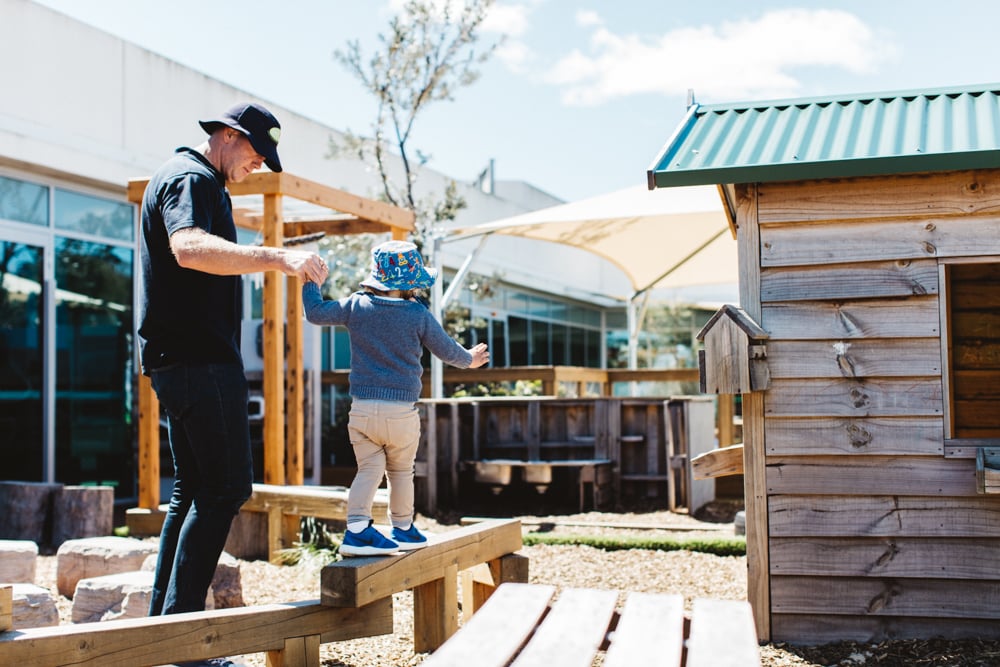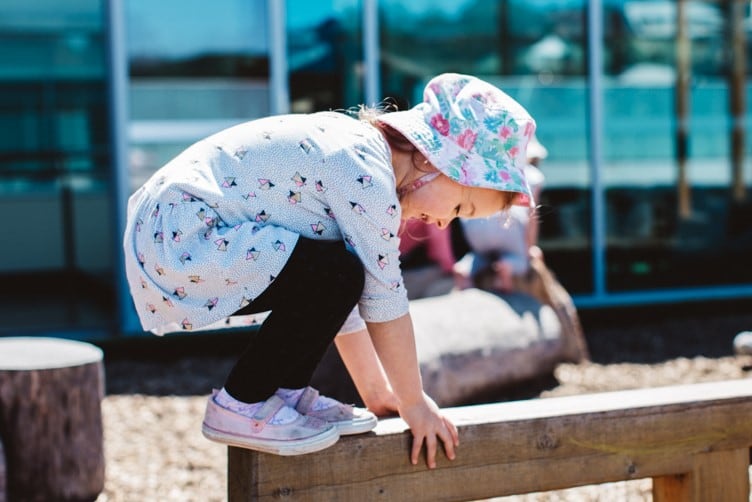
Gross Motor, or Locomotor skills as they are sometimes known, are skills which require whole body movement and are also referred to as Physical development. The term gross motor also includes eye-hand coordination skills such as throwing, catching and kicking.
The large muscles of the body, including the core are needed to perform everyday functions such as standing, walking, running, and sitting upright. Well-developed gross motor skills enable children to perform these every day functions as well as playground skills (e.g. skipping, climbing) and sporting skills (e.g. catching, throwing and hitting a ball with a bat). Gross motor skills are also important for carrying out self-care skills such as dressing and toileting. Early childhood is a time of significant development in this area, and gross motor skills also support other areas such as social and emotional growth.

It is important to remember that children develop at different rates and that timeframes for achieving physical milestones are very broad. You can find more information about skill development in The Early Years Learning Framework Developmental Milestones document (please note – this document is to be used as a source of information rather than as a prescriptive checklist).
If you have concerns about your child’s physical development or gross motor skills you should speak with your child’s Early Childhood Education and Care Service or with your child’s medical practitioner. Children who have difficulties with gross motor skills can benefit from working with an Occupational Therapist. It may also be appropriate to consult a Physiotherapist.
Healthy Kids. Resources for Playgroups and Parents/Carers. Accessed 10 April 2018 from https://www.healthykids.nsw.gov.au/campaigns-programs/resources-for-playgroups-and-parentscarers.aspx
Kid Sense. Gross Motor Skills. Accessed 10 April 2018 from https://childdevelopment.com.au/areas-of-concern/gross-motor-skills/gross-motor-skills/
Author: Suzanne Barrett-Chiha, Explore & Develop Umina